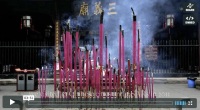Some might be already familiar with the notion of China being the world’s sleeping dragon (well, they’re now pretty much awakened and breathing fire, albeit, peacefully). Napoleon needs little introduction – the short and stout Frenchmen who pretty much took over Europe with a belly of fire, never taking no for an answer. Apparently, even 200-odd years ago, he had the foresight to predict what’s happening in the world today.
On China…He was supposed to have said, “Let China Sleep, for when the Dragon awakes, she will shake the world.” Now – foresight or wisdom? Another perspective would reveal that he could have very much appreciated the value of what a cultural centre like China’s could do to keep an empire together (like how early Christianity served as a glue for the Roman Empire).
Or something to that effect. That triggered a little hunt online for the origins of such a saying, if it indeed happened, and if it did, what it meant.
And I managed to find a pretty decent entry at the China History Forum.
“Actually, there seem to have been two quotes. The first one is attributed to Napoleon in 1803 (ie before he became emperor), he is said to have pointed to a map, on china and said (more or less, there are many versions of the quote)
“Ici repose un géant endormi, laissez le dormir, car quand il s’éveillera, il étonnera le monde” – “here lies a sleeping giant (lion in other versions), let him sleep, for when he wakes up, he will shock the world”
And then, there is a second, more famous one, which is supposed to have been said in St Helena (in which case, it might be in Las Cases Memorial of St Helena): “quand la chine s’éveillera, le monde tremblera” (when China wakes up, the world will shake).
As for Napoleon’s knowledge of China, the second half of the 18th century was a moment when Jesuit missions were quite active in China (time of Amyot, Castiglione, etc… all Jesuits who held high positions in the Qing court). The first translations of classics date from this era, and many of the translations were into latin or french. The first translation of the Daodejing, of some Confucian classics, and more importantly of the Sunzi and other military books were done in the second half of the 18th century. It is quite likely that Napoleon did read Amyot’s translation of Sunzi (in fact, a compilation of several military texts, which included the Sunzi).
Note also that all things asian, and especially chinese, were fashionable among european intellectuals from the 17th and 18th century. Leibniz was probably the first, but Voltaire took sides in the quarrels on the origin of chinese civilisation, and wrote a tragedy “l’orphelin de la Chine”, which had some success, after a translation of a chinese play based upon a story from the Shiji (the orphan of Zhao).
So, Napoleon did have some notions about china, and chinese civilisation, and was in this respect pretty typical of many young educated people in the late 18th century (or early 19th).”
—
In another article found on the Washington Times
The sleeping giant stirs
J. Ross Baughman
Sunday, August 3, 2008
Source – http://www.washingtontimes.com/news/2008/aug/03/the-sleeping-giant-stirs/ (Date of Access 17 August 2008)
“Alexander the Great would have liked to have conquered the entire world, but found his limitations on the doorstep of east Asia. Centuries later, Napoleon knew his own military ambitions would fall short of the same frontier, and supposedly muttered “China is a sleeping giant. But when she awakes the whole world will tremble.”
Sigmund Freud, who had a lifelong fascination with ancient Oriental art, also found this metaphor irresistible, except that the father of modern psychology saw in the sleeping giant China’s potential for rage, born out of a deep-seated repression of ego and individualism.
Mao Tse Tung, the Marxist revolutionary, with an image of the “sleeping giant” in mind, promised his people that “All that the West has, China will have.”
Now that’s some food for thought on the world’s imagination of China. At this point I’m wondering if any of these worries are founded as China has always proven to prefer to take the a ‘pacifist’ strategy of non-violence (as anyone who reads Sun Tze in any detail would know), and have hardly been known to take her internal problems outside of the country, much unlike the West, who take lands as they see fit hiding their resource gathering under a guise of pseudo-legitimate reasons. Why’s the West keeping relatively quiet on Georgia today? I doubt there’s anything to fear about China unless provoked. But it looks like the provocation will continue.
Filed under: Napoleon










The Sharing Circle